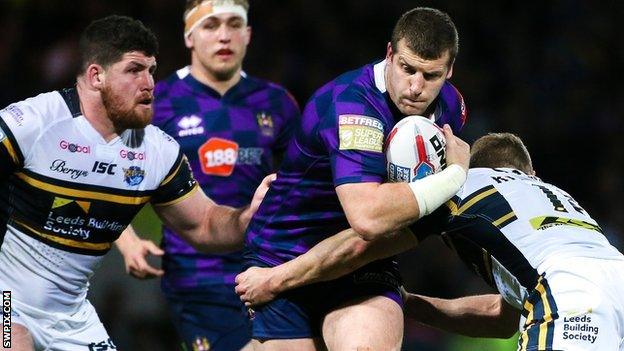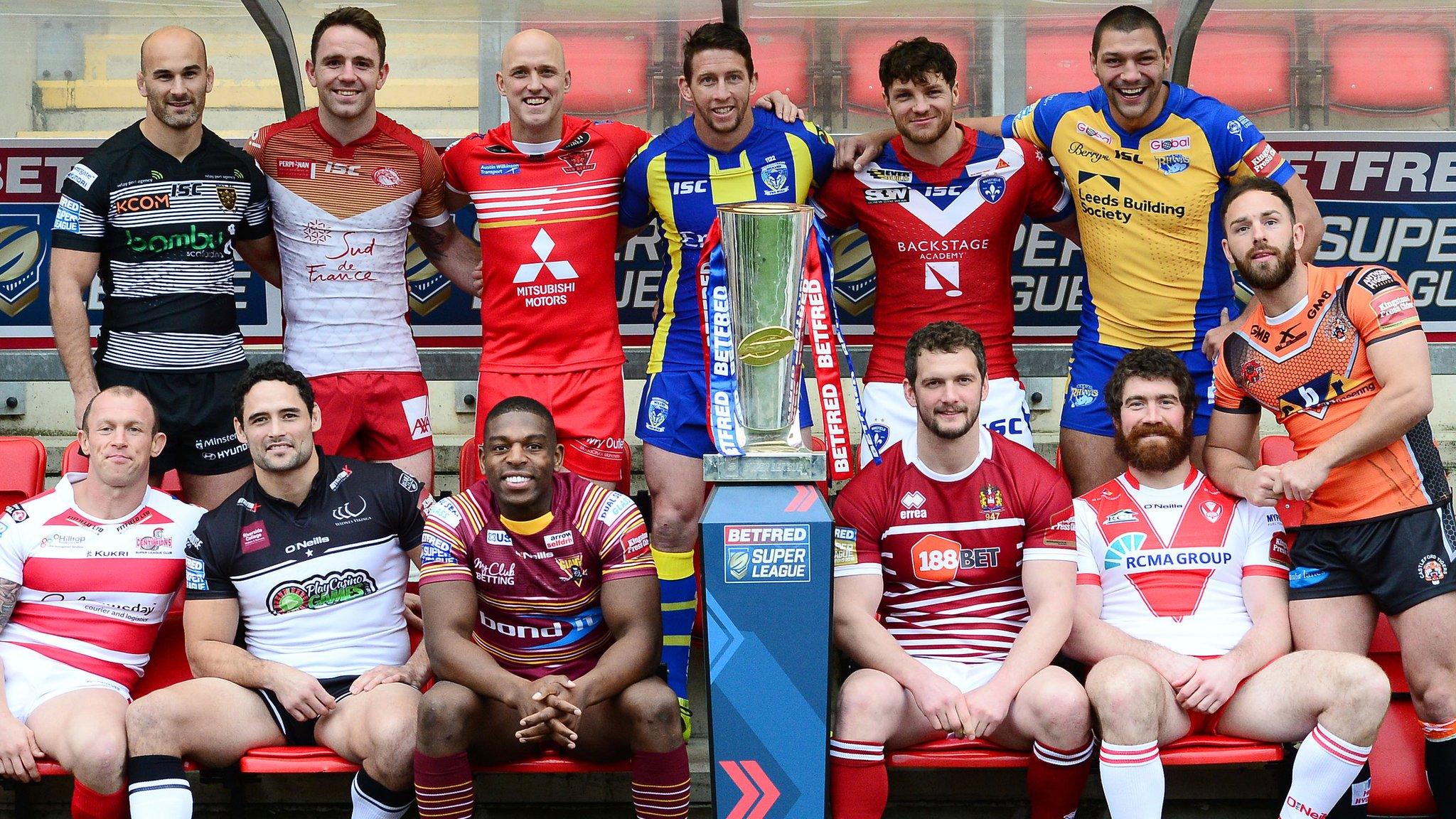Super League salary cap increase approved by Rugby Football League
- Published

Leeds Rhinos and Wigan Warriors have won nine of the past 10 Grand Finals
The Rugby Football League has approved plans to raise the salary cap in Super League from £1.825m to £2.1m by 2020.
The clubs had voted in favour of the increase by a majority of seven to five at a meeting on Wednesday.
In addition, clubs can have two marquee players - up from one - with exemptions for new or returning players as well as some under the age of 21.
The 12 teams will be able to spend £1.9m next year, £2m in 2019 and then £2.1m in 2020.
It is below the Australian National Rugby League cap of £4.25m for 2017, while, in rugby union, the English Premiership cap is £7m.
Super League's chief commercial officer Roger Draper says the increase will put clubs in a stronger position to compete to bring some former league players back to the sport from rugby union, such as Kyle Eastmond,, external who left St Helens to join Bath in 2011, and Chris Ashton, an ex-Wigan player currently at Toulon.
When asked by BBC Radio Manchester if this is an attempt to target union players, he replied: "Yes, there are rugby union players out there and returning talent.
"There is speculation around Kyle Eastmond and Chris Ashton, those sort of players, who have made an impact and want to come back into rugby league as well."
Wigan Warriors owner Ian Lenagan voted in favour of the new proposal and said: "We need the best players playing in our competition and when all of the proposals that were voted through are looked at together, the decisions that were made will provide Super League clubs the opportunity to do that."
However, Wakefield coach Chris Chester told BBC Radio Leeds the changes will make things tougher for his club.
"I think it's divisive and it will make the gap between the top and the bottom wider. I find it bemusing," he said.
"There won't be any marquee players at Wakefield Trinity for the foreseeable future. It's something we won't be using."
What does it mean?
Marquee players
A club is allowed to nominate two marquee players in their salary cap who have to be paid more than £175,000.
If that player has been trained by the club only £75,000 of their salary contributes towards the cap, while anyone outside of that would be a £150,000 contribution.
New and returning players
A club is also entitled to register two players in their squad that can either be new to, or wanting to return to, the sport.
For a new talent pool player - someone who has never played rugby league - their wage will not count towards the cap in their first season and then 50% from their second.
For a returning talent pool player, for example someone returning from rugby union, they must not have played rugby league for five years and in the first season their wage contributes only 50% towards the cap and 75% in a second season.
- Published5 April 2017
